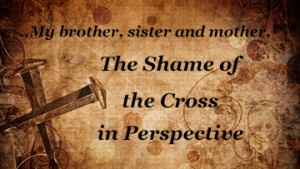The Easiest “Job” on Earth: Critic
 The movie Ratatouille came out when my twins were six and so it’s fair to say that I have seen it many times. It is not my favorite, but one of my favorite movie moments of all time comes at the end when the food critic Anton Ego faces the truth about what it is that he really does for a living. In his final review, the review in which he actually places himself instead of someone else on the chopping block, he begins with:
The movie Ratatouille came out when my twins were six and so it’s fair to say that I have seen it many times. It is not my favorite, but one of my favorite movie moments of all time comes at the end when the food critic Anton Ego faces the truth about what it is that he really does for a living. In his final review, the review in which he actually places himself instead of someone else on the chopping block, he begins with:
“In many ways, the work of a critic is easy. We risk very little, yet enjoy a position over those who offer up their work and their selves to our judgment. We thrive on negative criticism, which is fun to write and to read. But the bitter truth we critics must face, is that in the grand scheme of things, the average piece of junk is probably more meaningful than our criticism designating it so….”
That was a humbling thing for me to hear way back when, and I’ve never forgotten it. Those who put themselves out there, are forever at the mercy of those who don’t but still feel free to criticize – which is the prime reason why I leave people alone if I am not actively doing what they are doing or truly studying in depth what they are studying in depth. There are a great many things that I do not have the standing to critique in this world. Social media has made it all too easy for people to behave badly, to foist their critical spirits, lack of self-control and/or humility upon the world in general, as though disagreement is a capital crime worth being gunned down over. Whether we are talking about the drive by corrector who simply comes by and makes a disparaging comment and then never comes back to defend it or back it up when challenged, or the professional flame artist, who delights in argument – such people thrive not on relationship, but on the undermining of many. Indeed there are people out there who never seem to say a word unless it can contain a critique somewhere. Some have very little to offer and so they make their way through social media by seeming to have the knowledge required to school the teacher on some minor point – sometimes a point so minor that the teacher wouldn’t waste anyone’s time by mentioning it. I call it the ‘ministry of refutation’ and it’s scandalously easy to do – you don’t even have to actually know anything; all you have to do is inject doubt and undermine the other person. Most people who read and listen don’t even ask or care about your qualifications, they are just looking for someone entertaining to believe and mistake passion and charisma for credibility.
I have a policy – if I have never praised or encouraged you (especially recently) or if we have no real relationship, then I will pretty much leave you alone. Call it a heads up that I once got about my lack of importance in the whole scheme of things. If you are not important enough for me to spend time with and actively cheer on, then you are not important enough for me to correct either. Of course, I say that tongue in cheek because everyone is important, but I simply don’t have enough time or energy to be there for everyone or really even for many people. If I don’t spend my time getting to know you, how can I discern what you do and do not know, where you are at and what your character is well enough to judge your tone of voice? That many people have found the time to cheer me on and encourage me is humbling indeed – more than I deserve for the lack of personal effort I put into the lives of others as individuals. I’m just a teacher, and teaching is often a rather detached profession. I bear in mind that there are billions of wrong people out there, and I am one of them. I choose to treat people as I would have them treat me – not as those who are in great need of my correction but never my encouragement, or throwing them an ounce of encouragement so that my criticism can look less critical even to myself. I know that I am still uninformed about so very much and I am grateful for the people who do give me credit for what I have learned and the space and dignity to learn more – and so I extend that to others. If someone values or desires my input, then they will ask – and a lot of people ask, even though oftentimes I have to honestly say, “I don’t know, I haven’t looked into that yet, all I could give you is an opinion and I’m sure you have your own opinions already without me adding mine.” Who knows, maybe that’s why they ask – after all, who really needs my opinions anyway?
The work of creation is a risk. It requires pouring yourself out for all to see – the educated and uneducated alike, the graceful and the graceless, the humble and the arrogant, those who are teachable and those who only want to pick at the teaching like a food critic picks at food he never even paid for. In my case, sometimes a blog comes at the end of years of study, decades of experience, or sometimes it comes down to something I have only recently learned – but I put it into words for the sake of edifying the Body. I mean, I could keep the information to myself – after all, I learned it for myself and not for anyone else – but where’s the fun in that? Whether it comes in the form of my children’s videos on youtube, my books or my blog, I have invested time and yes even love into each creation – whether it be hundreds of hours or just a few. The critic on the other hand, as Anton Ego wrote, risks absolutely nothing. One can work their way from one end of social media to the other, critiquing the work of others like a food taster and without ever having to produce anything themselves. Like the food critic, the internet critic needs nothing other than their mouth, tongue and fingers because everyone else does all the work for them – providing the feast for their critical spirits to descend upon like a vulture. The critic strides in like an authority, not because they produce but because they consume – greedily gobbling up the blood, sweat and tears of others, reaping the benefits of the work of others while often giving absolutely nothing in return but their disdain. But is the critic really an expert, or does the critic simply know what they do and do not like and how to express it? That’s what Anton Ego learned – that he was merely a walking, talking opinion and not really an expert on actually doing anything. Food critics, like social media critics, often devour in order to find the fault instead of the good. No chef, and no teacher can defend themselves against that sort of person.
That’s the food world, but the Body of Messiah is supposed to be about relationship. People should know who we are by how we love each other, not by how we publicly criticize each other or ignore the good in search of the fault. Anton Ego had it right in the end – the junk that someone labors to put out is often more meaningful than the negative criticisms piled up against it. There are people out there who need correction, who need teaching – but is a sometimes nameless, faceless stranger the person to do it? Someone who is nothing but a drive-by corrector of unknown qualifications, who may or may not study, may or may not have good character, and may or may not even know what they are talking about? There are people out there who are posing as teachers who are unbalanced, others who won’t admit that they really haven’t studied much or have studied so narrowly that their critiques on certain areas are empty and meaningless no matter how much they know about other areas. There are others who have terrible character, who probably wouldn’t be allowed to teach in person in the first century assemblies at all but out on social media all one needs to do is sound interesting. There are some who are bent on conquering, who want to be deferred to, called by whatever title they have laid claim to, who want the air of respectability without having to earn respect through relationship. There are many who are fear driven and for whom the ends justify the means, even if it involves deception in order to keep others “in line.”
Ever wonder what would happen online if we all held ourselves to only critiquing those whom we had actively cultivated a relationship with over time? Or maybe, if instead of rushing to critique, we asked questions? Or maybe most importantly – what if when we are offended we take a good hard look at why we are offended? I would say that probably 95% of the critiques I get are not from people who can argue facts with me, but by those whose agendas, pet doctrines or behavior are being called into question – even though the blog was never aimed at them personally. Critical people leave me alone when they agree, or if they figure someone else’s agenda is being crushed, or someone else’s behavior is being called into question – they enjoy those things, but not enough to encourage me and that is very telling (only to comment on how awful ‘those’ people are, when what I post is meant to make each of us look within – not at others). That they only respond when they can disagree or disapprove of others or exalt themselves is more revealing than their silence when they do agree – and interestingly, I know exactly who will respond if I put out certain kinds of posts. I could make a list and unless someone is on vacation, I will always strike gold – if criticism can be equated with gold. Many folks don’t care to engage unless it is in negative terms.
Disagreement and correction, within the bounds of a good relationship, are healthy and edifying for both parties. I cherish my accountability partners (I have six very knowledgeable people who actively hold me accountable for what I teach, about four others who weigh in from time to time whose opinions I respect, and about ten people who hold my behavior accountable and warn me when I need to shut up), but that accountability is always in terms of established relationships. When they talk, I listen because I know that they love me and because the success of what I do it important to them – not to the point that they are going to agree with everything I write, in fact, sometimes we argue behind the scenes – and that’s okay. They want me to succeed because it is about building the Kingdom of Heaven and not about building my own illegitimate kingdom. None of them are doing the easy work of the drive-by shooter looking to gun down whatever offends them, they are doing the hard work of being the Body of Messiah. I love them not because they are “yes” men and women, but because they are invested in me and so I cherish every word they speak to me. They have earned the right to speak whatever they need to speak into my life, and they aren’t afraid to let me have it when I have it coming.
Let us all endeavor to make our words count for something other than making ourselves look good and someone else look small. Anyone can be a critic – but not everyone can edify.



